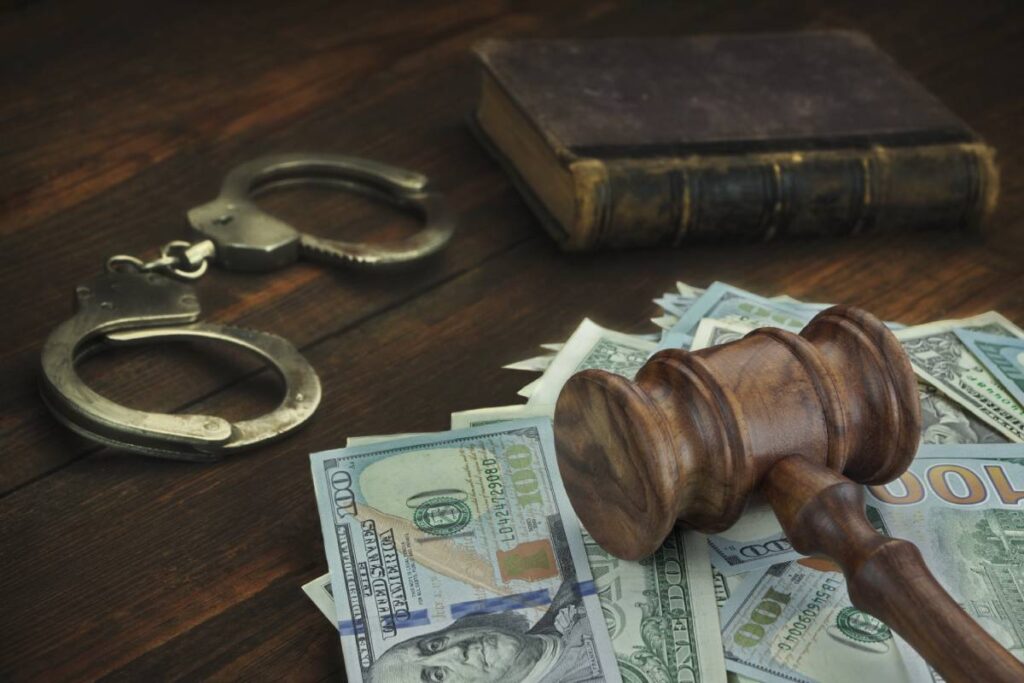
Just as courts can grant bail bonds, they can revoke them, too. But what does revoking a bond mean, and what are the consequences for a defendant? While you should hire an attorney if you’re facing bond revocation, let’s consider these questions below.
What Is a Bail Bond?
A bail bond is a payment to secure a defendant’s early release from custody. It means that the defendant can stay with their family while they await trial.
In exchange for “posting” or paying bail, the defendant must agree to certain conditions. These bail conditions include turning up for every scheduled court date. They may also include:
- Avoiding contact with the victim
- Remaining a certain distance away from the victim
- Going to counseling or rehab sessions
- Agreeing to drug or alcohol testing
Bail bonds are cheaper than posting the full bail amount. All you need to do is pay a bail bondsman a premium (usually around 10% of the bail amount). In exchange, the bail bondsman guarantees bail.
Bond Revoked Meaning
Revoking a bail bond means that the defendant has lost their right to bail. In other words, the bond is forfeit and the defendant must be returned to custody. Should the defendant wish to seek bail again, they must restart the entire process.
Why Would a Judge Revoke a Bond?
There are many reasons why CA judges revoke bail bonds. However, the most common reasons for revoking bail bonds are when the defendant:
- Disappears i.e. they can’t be located.
- Skips a scheduled court date i.e. fails to appear.
- Commits a crime on bail.
- Breaks their bail conditions e.g. they fail a drug or alcohol test.
Bail is an agreement between the court and the defendant (and, of course, the bail bondsman). As with any agreement, the court can revoke the bond if the defendant doesn’t follow the rules. Even if the defendant accidentally breaches their bail conditions, it still leaves them open to bond revocation.
What Happens After a Bond Is Revoked?
If the court revokes a bond, a few things happen.
- Firstly, the court will issue a bench warrant for the defendant’s arrest. Police will arrest the defendant and return them to custody.
- Depending on the circumstances, the defendant may face further charges for crime(s) committed on bail.
- The court now holds the co-signer, or indemnitor, responsible for the full bail amount.
If you paid the full bail amount yourself, you may lose it unless the judge agrees to reinstate bail.
Could I Lose My Collateral?
Potentially. If you put up collateral – such as property – for the bail amount, it could be seized at this stage. There is a risk that the co-signer could lose money or assets. Your bail bondsman will be happy to answer any questions you have about this before taking out bail bonds.
Will I Get My Bail Bond Premium Back?
Bail bond premiums cover various administrative and legal costs. They’re always non-refundable. Meaning, you won’t get this money back even if a bond is never revoked. Your bail agent can explain how premiums work – and how much you’ll pay – in more detail.
How Do I Know if My Bond Has Been Revoked?

In most cases, the bail agent will notify the defendant that they’re canceling the bond agreement. Or, police may arrest the defendant first for skipping bail or violating other bail conditions. They may also receive formal notification from the court.
Reinstating Revoked Bonds
The defendant returns to jail after bail bond revocation. However, it’s possible to ask the court to reinstate a revoked bond. This is a defendant’s one chance to avoid losing their bail money, or property put up as collateral.
If the court grants this request, they can proceed as if the bond was never revoked. The court will issue a bail bond reinstatement notice confirming this.
To reinstate a revoked bond, contact our agents for help.
Can the Judge Refuse to Reinstate a Bond?
Yes. There’s no requirement for a judge to reinstate a revoked bond. For example, the judge may refuse a reinstatement if the defendant commits another crime. This is even more likely if the defendant commits a felony offense.
Judges have wide discretion to deny a request for reinstatement. The best way to prevent a bail bond revocation is to comply with bail conditions and attend every scheduled court hearing.
Do you need bail bondsmen in California? Contact Bail Hotline. Our agents can help you secure a defendant’s quick release from custody. We’re located close to various local jails and we’re on hand 24/7.
Don’t delay – call the Bail Hotline today.